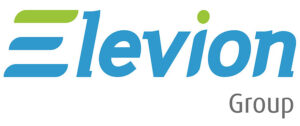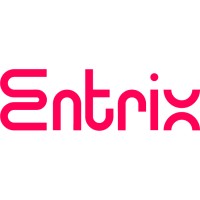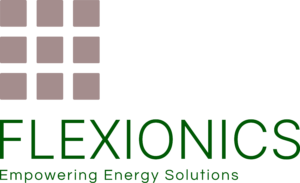Previous Agenda
If you would like to present a case study or be part of a panel session at our Energy Storage Summit Germany -Stuttgart 2026,
please get in touch with the team today.

If you would like to present a case study or be part of a panel session at our Energy Storage Summit Germany -Stuttgart 2026,
please get in touch with the team today.
The morning will start with a plenary session with attendees of the Battery Show Europe, Electric & Hybrid Vehicle Technology Expo and Energy Storage Summit. Sessions will include detail on the state of the industry, cost of raw materials and the direction of travel for manufacturing and R&D. These plenary sessions will be led by CxO speakers before allowing the audience to break down into four detailed streams of content. There will be a short morning break, allowing for networking with attendees and exhibitors.
Historically driven by residential demand, utility-scale projects are now beginning to surge, with nearly 16 GWh of capacity installed in the first half of 2024. Germany is set to integrate up to 24 GW of utility-scale energy storage by 2037, creating substantial opportunities. This opening session will set the scene, looking at the impact of 2024 as a key year for regulation in Germany and exploring how Germany’s utility-scale boom might play out in the next five years.
This session will break down the most influential regulatory pieces from top to bottom, discussing different scenarios for how these may play out towards the end of the decade when changes come into play. This session is a must-attend to help you understand how you can guarantee and strengthen your business case for utility-scale energy storage in Germany.
The integration of Battery Energy Storage Systems (BESS) is crucial for Germany’s transition to a low-carbon energy system. However, despite their potential, BESS projects in Germany face significant regulatory hurdles, hindering their approval and deployment. This presentation will delve into the key challenges and obstacles impeding BESS approval in Germany, including complex permitting processes and grid connection issues. We will also discuss strategies for overcoming these challenges, such as streamlining permitting procedures and enhancing public awareness. Furthermore, we will outline potential legal changes that could facilitate BESS adoption, including reforms to the Renewable Energy Act (EEG) and the Grid Expansion Acceleration Act (NABEG). By addressing these regulatory barriers and advocating for policy reforms, we can unlock the full potential of BESS in Germany and drive the country’s energy transition forward.

In a world where revenue certainty is key, how can new financial and contractual agreements provide peace of mind to those investing in energy storage in Germany?
The successful development of large-scale energy storage projects in Germany depends not only on regulatory processes, but also on the selection of the appropriate battery technology and the associated corporate services. This article analyzes the technical requirements for battery storage systems, the role of providers offering specialized services, and strategies for optimizing project development. Particular emphasis is placed on integration into the German energy system and the economic opportunities for companies.

The upcoming market for inertia in Germany creates new opportunities for developers, IPPs, and investors by opening up an additional revenue stream for BESS. This presentation explores the critical role of Grid Forming in ensuring tomorrow’s grid stability, how these solutions meet the requirements of a resilient power system, and the practical experience SMA has already gained with such systems in large-scale applications. The session will also highlight current technological developments – such as the innovative use of silicon carbide (SiC) MOSFETs in battery inverters – which enable higher efficiency, reduced thermal losses, and enhanced performance in grid-forming applications in the large-scale segment.

With the current grid tariff structures in Germany being brought under the microscope, and grid-fee exemptions set to end from 2029, what will happen next for developers when it comes to these important considerations on the overall costs and therefore their business case?
This presentation on the topic of Long Duration Energy Storage from IDTechEx will provide insights on:
With the date for the EU’s battery passport regulations fast approaching and already impacting many stakeholders, what do you need to know to ensure your battery is compliant? The session will focus on the following key questions:
This session will start with a brief overview of German capacity market plans and future direction, followed by a debate on its benefits vs. advantages. 2nd August 2024, the BKMW launched a consultation on future electricity market design, including various options for a Capacity Market to be implemented in 2028. As a country that has been historically anti-capacity markets, this marks an interesting paradigm shift in mindset for Germany. However, views remain mixed on the benefits of this proposed market design change.

Meet thousands of like-minded decision-makers at our complimentary Networking Receptions on Tuesday 3rd June and Wednesday 4th June, 4:30-6:00pm at Rothaus Park. Expect light bites and beverages, live music, raffles for fun prizes and the opportunity to discuss ideas with top industry experts across multiple sectors!
The morning will start with a plenary session with attendees of the Battery Show Europe, Electric & Hybrid Vehicle Technology Expo and Energy Storage Summit. Sessions will include detail on the state of the industry, cost of raw materials and the direction of travel for manufacturing and R&D. These plenary sessions will be led by CxO speakers before allowing the audience to break down into four detailed streams of content. There will be a short morning break, allowing for networking with attendees and exhibitors.

This keynote panel will explore one of the most important factors for growth in energy storage – the evolving business case in Germany.

This session will be led by experts on the commercialisation of energy storage assets. It will go into more detail on the best combination of revenue streams for energy storage projects and how owners and operators guarantee revenue. This in-depth session will provide an overview of how best to make money from BESS projects in Germany.

What do current and future investors and capital providers think about doing deals in a merchant-led, high-volatility market such as Germany?

What lessons can be learned from optimising assets in diverse markets, with differing revenue streams available to tap into and different market mechanisms on offer?
As electricity markets face growing volatility and more frequent negative price events, battery storage in co-location with PV systems is emerging as a key revenue driver. This presentation explores how intelligent storage integration and market-oriented optimization can turn challenges into opportunities—maximizing revenues, minimizing losses, and unlocking the full potential of flexible energy assets.
In this presentation, we are interested in finding out which European country is the most attractive for BESS investments.
We assess the attractiveness of Germany, the UK, France, Spain, Italy, and the Netherlands based on their:

Meet thousands of like-minded decision-makers at our complimentary Networking Receptions on Tuesday 3rd June and Wednesday 4th June, 4:30-6:00pm at Rothaus Park. Expect light bites and beverages, live music, raffles for fun prizes and the opportunity to discuss ideas with top industry experts across multiple sectors!
The morning will start with a plenary session with attendees of the Battery Show Europe, Electric & Hybrid Vehicle Technology Expo and Energy Storage Summit. Sessions will include detail on the state of the industry, cost of raw materials and the direction of travel for manufacturing and R&D. These plenary sessions will be led by CxO speakers before allowing the audience to break down into four detailed streams of content. There will be a short morning break, allowing for networking with attendees and exhibitors.
Leon Gosh, Founder and Managing Director of Cellect Energy, will discuss key challenges in managing utility-scale Battery Energy Storage Systems (BESS). Based on interviews with over 50 BESS asset managers, the session will explore issues such as data overload, control infrastructure, and multi-stakeholder coordination. It will also be presented how Cellect Energy’s software solutions—Cellect Platform, Control, and Data Management—help simplify daily operations, improve data handling, and support smoother collaboration across teams. Backed by industry experience and succesful customer implementation, the session offers practical insights into improving BESS operations in a growing and complex market.

This keynote session will bring international expertise from successful BESS players to the stage, to share insights around building a bankable business case, financial and offtake structures, building projects, and making money from them. This is the perfect session to find out insights from those who have already built BESS and monetized them.
The European regulatory framework relevant to the battery industry is undergoing a transformative shift to drive end-to-end value chain activity and build a resilient supply chain. Key frameworks such as the EU Battery Regulation, Critical Raw Materials Act (CRMA) and Rules of Origin (ROO) under trade agreements are shaping the future of the industry. These policies aim to enhance circularity, reduce dependency on foreign critical materials and ensure ethical sourcing while fostering local manufacturing and innovation.
This talk explores the evolving regulatory environment, focussing on the implications for battery manufacturers, technology developers, and end-users across Europe and in the UK. It provides an insight into the state of the battery supply chain in Europe through to 2035 and how companies are responding to regulation and associated market shape. It also examines how sustainability requirements, material sourcing constraints and local content rules (ROO) may influence investment decisions, supply chain strategies, and the pace of battery technology deployment for some chemistries.
